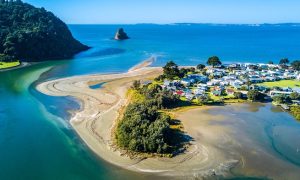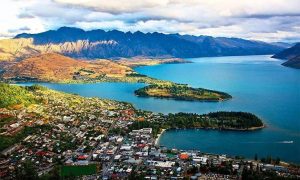New Zealand immigrationrespond in singingImmigration to AustraliaAs two of Oceania's top favoritesimmigrantsdestinations, with their good quality of life, pleasant climate and excellent social benefits, have attracted countless immigrants from around the globe. However, choosing which country to settle in often becomes a dilemma for many applicants. In this article, we will analyze the differences between these two countries in terms of immigration policies, cost of living, employment opportunities, education and healthcare to help you make the best choice.
I. Immigration policy: application thresholds and pathways
New Zealand: diversifying migration pathways
New Zealand immigration policyRelatively friendly, common immigration categories includeskilled migrantEntrepreneurshipinvestment immigrationand family reunification immigration.
- skilled migrant: Based on a scoring system, applicants need to meet a minimum score threshold (currently 180) and the occupation needs to be on the Long Term Skills Shortage List.
- investment immigration: It is categorized into Class I (high investment, starting at N10 million) and Class II (standard investment, starting at N3 million).
- family reunification: Support for the reunification of parents, spouses and children, but with a limited quota for parent visas.
Australia: Higher scores, more choices
Australia's immigration policy is also based on scoring, but with a broader list of occupations and a wider variety of immigrants.
- skilled migrant:: Categorized into Independent Skilled Migration (189 Visa), State Sponsored Skilled Migration (190 Visa) and Remote Skilled Migration (491 Visa).
- investment immigration: Higher threshold, requiring a minimum investment of AUD 2.5 million and demonstrated business management experience.
- family reunification: Quotas are relatively adequate and visas for spouses, in particular, are easier to obtain.
comparison summary: New Zealand has a slightly lower immigration threshold for those working in skill-deficient industries, while Australia has a broader but more competitive list of occupations.
II. Cost of living: which is more cost-effective?
New Zealand: livable but limited options
- Housing costs: Auckland and Wellington have higher house prices, but the cost of living in the South Island and smaller cities is relatively low.
- daily expense: High prices for supermarket food and daily necessities, but lower transportation costs and high quality of public services.
- tax rate: Personal tax up to 33%, but no estate or capital gains tax.
Australia: Big city living is expensive
- Housing costs: Sydney and Melbourne have some of the highest house prices in the world, but the cost of living in remote areas is relatively low.
- daily expense: Food and fuel prices are higher in Australia, but so are income levels.
- tax rate: Personal tax up to 45% and there is capital gains tax, but more tax relief programs are offered.
comparison summary: New Zealand is for those who seek a simpler life, while life in Australia's big cities is expensive but at a level of income that makes up for some of the expenses.
III. Employment opportunities: industry demand and potential
New Zealand: a blessing for skill-shortage industries
New Zealand has a small labor market, but has chronic shortages in areas such as construction, IT, healthcare, and education.
- High-demand occupations: Nurses, cooks, software development engineers.
- Employment culture: Work-life balance is emphasized and many positions offer flexible hours.
Australia: Bigger Markets, Higher Competition
Australia has a larger labor market and diverse industry needs, but it is also more competitive.

- High-demand occupations: Doctors, engineers, financial analysts.
- Employment culture: Emphasizes performance and efficiency, but is equally focused on work-life balance.
comparison summary: New Zealand is suitable for professionals in skill-shortage industries, while Australia offers a wider choice of industries, but is subject to higher competitive pressures.
IV. Education and health care: who has better benefits?
New Zealand: a small but sophisticated education system
- teach: New Zealand's eight universities are globally ranked and offer flexible course options with a focus on personalized student development.
- medical care: The public health system covers most services free of charge, but there may be a waiting list for non-emergency treatment. Private insurance can make up for shortfalls.
Australia: rich education resources, perfect health care system
- teach: Australia has a wider choice of tertiary education options from some of the world's leading universities, including the Big 8.
- medical care: Provides public health care (Medicare) with extensive coverage, but requires private insurance for faster service.
comparison summaryNew Zealand's education focuses on personalization and small class teaching is better than Australia's; Australia has abundant healthcare resources, but the cost of living is higher.

V. Natural environment and lifestyle
New Zealand: A Natural Paradise
New Zealand is famous for its diverse natural landscapes, with the glaciers of the South Island and the hot springs of the North Island attracting countless visitors. Migrants are able to enjoy outdoor sports, clean air and a low-pollution environment.
Australia: Vastness and Diversity
Australia has more natural resources, from the beaches of Sydney to the Great Barrier Reef in Queensland. Australia has a more diverse climate than New Zealand, but also has greater environmental risks (such as forest fires).
comparison summary: New Zealand is for those who seek a quieter, more natural life, while Australia offers more options for those who prefer diversity and city life.
VI. Summing up: how to make the best choice?
- Selection according to occupational background
- New Zealand is ideal if your occupation is on the skills shortage list and you are willing to accept lower competition.
- If you're looking to grow in a wider market, Australia may be a better fit for you.
- Choose according to life preferences
- New Zealand is definitely the place to be if you prefer quiet, nature and livable small city life.
- If you aspire to a multicultural and big-city lifestyle, Australia is more than capable of meeting your needs.
- Selection according to budget
- If you are more focused on cost of living and tax advantages, New Zealand is less burdensome to live in.
- If you can accept a higher cost of living in exchange for more opportunities and benefits, Australia is a good choice.
regardless of the choiceImmigration to New ZealandneverthelessImmigration to AustraliaBoth countries offer immigrants a wealth of resources and opportunities. By choosing the right country according to your needs and conditions, you can start a satisfying new life as an immigrant.






